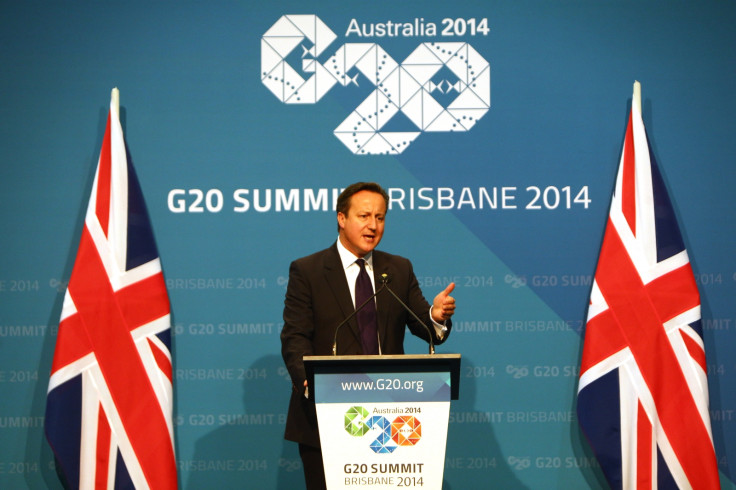TTIP: Cameron Pledges to Fire 'Rocket Boosters' Under Controversial EU-US Trade Deal

Britain's Prime Minister has pledged to fire "rocket boosters" under a controversial new EU-US trade deal.
David Cameron said that European Union and US leaders had agreed that the Transatlantic Trade and Investment Partnership (TTIP) is a "deal they all want," and he was "hopeful of progress".
He argued that the deal could boost the UK economy by up to £10bn (€12.5bn, $15.7bn) a year.
Critics of the deal though claim that it could result in the National Health Service (NHS) being sold off to US companies, and result in lower food standards, resulting in unhealthy American food being sold in the EU.
They further argue that it could give companies the powers to sue governments if they are effected by policy changes.
Speaking at the G20 summit in Brisbane, Australia, Cameron dismissed the criticisms as "weak", and claimed that allegations that the deal threatened the NHS were "nonsense."
"There's no threat, I believe, from TTIP to the NHS and we should just knock that on the head as an empty threat."
"It's our NHS, it's in the public sector, it will stay in the public sector, it will remain free at the point of use," he said.
Talks on TTIP started in June 2013, with the deal aiming to open markets by cutting tariffs and harmonising regulations between the economic blocs.
Critics argue that given that one of the aims of the deal is to reduce the cost of complying with regulations, it could weaken consumer protection standards, with food being a particular concern.
The Prime Minister insisted that the deal could enhance rather than weaken food and environmental standards, saying it meant the EU and US would have a common interest in agreeing standards.
He said that supporters of the deal had work to do, before public opposition to the deal gained traction, and said the pact was supported by "classic free trade argument for growth and jobs and investment".
"The opportunities for Britain of trading more with the United States of America are clear," he said.
Responding to claims that the deal could lead to disputes between companies and the government, he said: "We've signed trade deal after trade deal and it's never been a problem in the past."
Anti-TTIP protests were held last month in the UK, Germany, France, Italy, and Spain.
At the UK Trades Union Congress in September, delegates unanimously supported a motion opposing TTIP.
Unite general secretary Len McCluskey told the BBC that Cameron was "riding roughshod" over objections and "trying to brush the threat of TTIP under the carpet".
He asked: "If it is not a threat then why doesn't David Cameron just make an explicit commitment to use his veto in Europe to get the NHS out TTIP?"
© Copyright IBTimes 2025. All rights reserved.






















